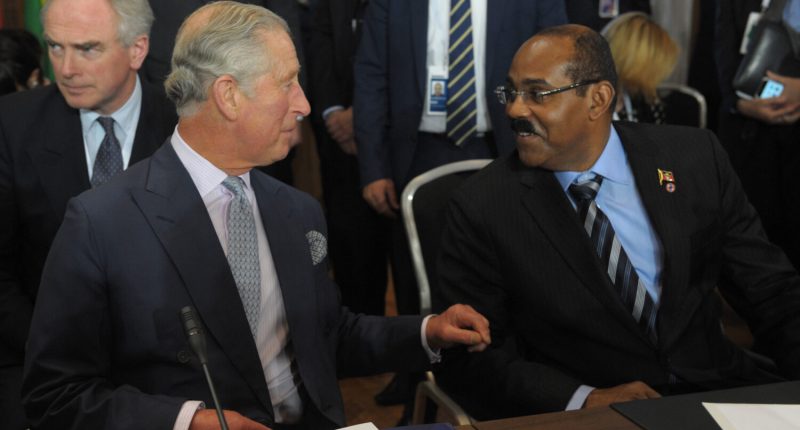Antigua and Barbuda will vote on whether to become a republic following the death of Queen Elizabeth II, the country’s prime minister has said.
Gaston Browne said a referendum could take place within three years – but emphasized that the move was “not an act of hostility”.
He made the comments after confirming Charles III as King and head of state of the Caribbean nation.
Mr. Browne said he intended to introduce the referendum if re-elected next year.
While he expects to win that election – his party holds 15 of the 17 seats in the House of Representatives – he accepted that there hadn’t been any major demand to hold a vote among citizens.
“I think most people haven’t even bothered to think about it,” Mr. Browne told ITV News.
Earlier, Australia ruled out a similar vote within the next four years.
The Queen’s death has reignited Australia’s monarchy debate, and Prime Minister Anthony Albanese, who was elected in May, is a Republican.
But he ruled out a poll in his first term and told Sky News that “the bigger questions about our constitution are not ones for this current period”.
In addition to the UK, King Charles serves as head of state in 14 countries – Antigua and Barbuda, Australia, The Bahamas, Belize, Canada, Grenada, Jamaica, New Zealand, Papua New Guinea, Saint Kitts and Nevis, Saint Lucia, Saint Vincent and the Grenadines, Solomon Islands, and Tuvalu.
But many countries are reconsidering the role of the monarchy, with Mr. Browne saying becoming a republic would mark the “final step to complete the circle of independence to become a truly sovereign nation”.
Last year, Barbados swore in its first president after the Queen was removed as head of state by the country’s parliament.
Dame Sandra Mason, 72, the island’s governor-general since 2018, was named as president-elect of the nation following a vote in parliament.
Barbados’s decision marked the first time in nearly three decades that a realm opted to remove the British monarch as head of state. The last nation to do so was the island of Mauritius in 1992. Like that country, Barbados has remained part of the Commonwealth.
And in Jamaica, the ruling Labour Party says its goal is to hold a referendum on becoming a republic.





